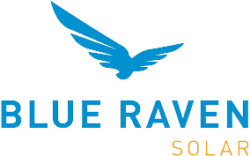It can be expensive to make the transition to solar energy. Over the past few years, however, the cost has dropped considerably. If you live in Texas, you may even qualify for more savings. In the last decade, the Lone Star State has increased solar tax incentives to help make renewable energy more accessible to its residents.
For the average home in Texas, solar panel installation costs between $11,390 and $15,410, but you can save thousands of dollars with tax credits and rebates.
This guide walks you through some of the major incentives that help Texans make the switch to solar energy and find a leading solar energy provider.
Texas Solar Tax Credits and Rebates
Homeowners across Texas qualify for programs that help them save on upfront solar installation costs and long-term electric bill costs. Read through the sections below to check your eligibility for these solar rebates and credits.
Solar Rebate Programs
Though Texas doesn’t provide statewide tax credits or rebates, many local governments offer programs. Local utility companies also offer rebates.
Here are some examples of those clean energy solar incentives:
- Austin Energy Solar Photovoltaic (PV) Rebate: Austin Energy provides an educational course on solar PV systems to inform your solar shopping decision. After you complete the course, you get a $2,500 credit toward the purchase and installation of a qualifying solar PV system.
- CPS Energy Solar Rebate: CPS Energy residential customers are eligible for a $2,500 credit toward the installation of a solar power system. Customers can get an additional $500 credit toward their solar panel installation if they opt for locally sourced panels.
- Oncor Electric Delivery Residential Solar Program: Oncor doesn’t provide incentives to customers directly. Rather, it teams up with providers who install PV systems within its service area. If you choose to work with one of these installers, you’re eligible for a certain incentive amount that Oncor gives to the provider and the provider gives to you.
- City of Sunset Valley PV Rebate Program: The City of Sunset Valley offers rebates for Texas homes with PV systems. This rebate can be stack on top of one from Austin Energy to maximize your savings.
More Resources:
The Solar Energy Industries Association provides general information about solar energy in Texas. The Database of State Incentives for Renewables & Efficiency (DSIRE) also has a comprehensive database of all Texas’ solar rebate programs.
Solar Panel Property Tax Exemptions
The Texas property tax code offers 100% tax exemption for any increase in property value that results from your solar installation.
In addition to saving money on your monthly energy bill, you’ll also save money on your annual property tax.
Here’s some additional information about Texas taxes and this tax exemption:
- There’s no state property tax, so local governments assess and administer their own property taxes.
- There are various partial and total solar exemptions available.
- You have to apply to get a solar property tax exemption in most circumstances.
The tax exemption requirements are extensive, so conduct your own research before you apply.
More Resources:
Your best resource is your local government, but the website for the Texas Comptroller of Public Accounts offers general information about solar property tax exemptions.
Solar Buyback Programs
Texas has a deregulated electricity market. This means that separate companies control each step of getting electricity from the power plant to your home.
With renewable energy buyback programs, customers in deregulated service areas can choose a retail electric provider to buy back their excess energy.
Selling this power back to the grid works differently in every city, town, or ZIP code. Check out the requirements for your service area.
More Resources:
Power To Choose helps you find buyback programs that you’re eligible for. Enter your ZIP code, and wait for the database to find the programs in your area.
Net-Metering Programs
In addition to Texas’ other programs, you may be able to participate in a solar net-metering program.
Sometimes called net energy metering, or NEM for short, this type of program credits solar energy system owners for the unused energy that they produce.
Anytime your system isn’t producing enough energy for your needs, you can draw on those credits instead of paying for electricity.
Even though there isn’t a statewide net-metering program in Texas, some local governments and electricity providers have net-metering programs.
More Resources:
The DSIRE database also has an extensive list of Texas’ available net-metering programs.
Federal Solar Tax Credit
Texas homeowners can also take advantage of the Federal Solar Investment Tax Credit (ITC).
In addition to any local incentives you may qualify for, you can use the ITC to get a deduction on your federal taxes that equates to 30% of your solar installation costs, helping reduce your overall investment.
This credit is applied during tax time to reduce or eliminate your federal tax liability. Any remaining credits can roll over to the tax period. The solar tax credit is limited to new customers who own their solar systems. This credit decreases to 26% in 2033 and lowers to 22% in 2034.
You can only qualify for the federal solar tax credit if you own your system outright. While cash purchase and solar loan fall into this category, solar lease and power purchase agreements don’t.
Our Conclusion
From Dallas to San Antonio, there’s ample sunshine that makes Texas an ideal state to invest in this renewable resource. If you’re ready to move forward with solar installation, these are our top solar companies in Texas:
- Momentum Solar: A user-friendly option, Momentum Solar aims to make the transition to solar as easy as possible. The company even walks you through your available incentive and financing options.
- ADT Solar: ADT Solar provides extensive labor, panel, and inverter warranty coverage. It also offers a power production guarantee, which pays you in the event that your system doesn’t produce at its projected performance level.
- Elevation: Elevation offers whole-home integration, making it ideal for customers who want electric vehicle chargers, backup batteries, and more. With a proprietary monitoring app and 25-year warranty, Elevation makes for a reliable provider.
FAQs About Solar Incentives in Texas
Our Rating Methodology
The This Old House Reviews Team is committed to providing comprehensive and unbiased reviews to our readers. After over a thousand hours of research on solar companies, interviews with experts, and common customer needs, we’ve created a detailed rating system for solar providers based on six factors:
- Solar equipment, installation, and services (25%)
- Warranty and performance guarantees (25%)
- Brand reputation and certifications (15%)
- Financing options (15%)
- Experience (10%)
- Availability (10%)
Total scores are divided by 20 for a final 5-point rating scale.
To share feedback or ask a question about this article, send a note to our Reviews team at reviews@thisoldhousereviews.com.



